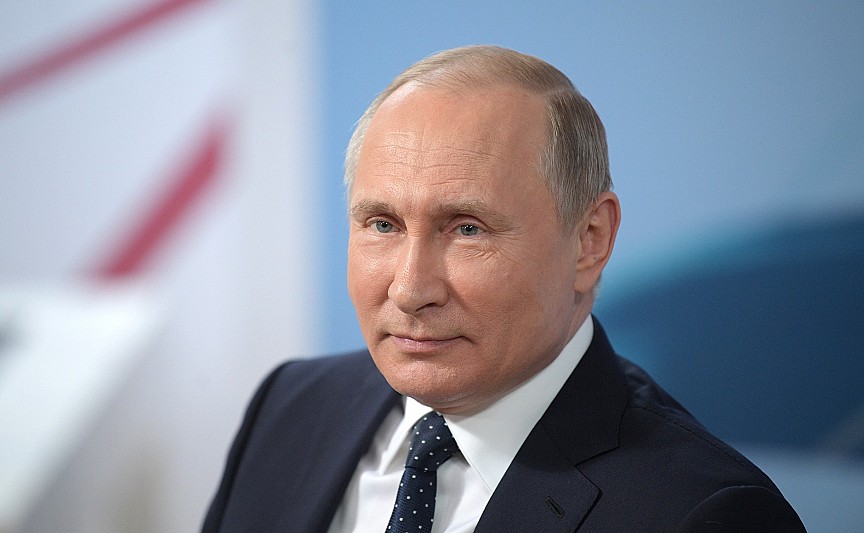Russia’s Economy Surges in 2024 Despite Global Pressures
13.07.2024 18:00 1 min. read Alexander Stefanov
In 2024, Russia's economy shows robust growth, surpassing expectations with a 5% GDP increase in the first five months.
Prime Minister Mikhail Mishustin highlighted this progress, noting a slight acceleration in growth to 4.5% in May. The manufacturing sector, driven largely by machine building, expanded by nearly 9%, supported by a 15% rise in investments in machinery, equipment, and intellectual property by the end of the first quarter.
Companies are reinvesting profits, and regional investments are intensifying, contributing to long-term economic stability, according to Mishustin. Despite strong consumer activity bolstered by rising incomes, inflation reached 4.5% by July 1, prompting close monitoring in collaboration with the Bank of Russia.
Russia’s oil revenue surged nearly 50% in June 2024 compared to the previous year, attributed to successful adaptations to Western sanctions, particularly with its flagship Urals crude oil. Moscow’s oil-related tax revenues also saw a substantial increase, reaching 590.6 billion rubles from 402 billion rubles in June 2023.
President Vladimir Putin recently approved tax amendments aimed at fostering a balanced tax system, following a budget deficit in 2023 amounting to around 3.2 trillion rubles or 2% of GDP. These changes were passed by Russia’s parliament earlier this week under Finance Minister Anton Siluanov’s guidance to ensure fairness.
-
1
Trump Targets Powell as Fed Holds Rates: Who Could Replace Him?
27.06.2025 9:00 2 min. read -
2
U.S. PCE Inflation Rises for First Time Since February, Fed Rate Cut Likely Delayed
27.06.2025 18:00 1 min. read -
3
Key U.S. Economic Events to Watch Next Week
06.07.2025 19:00 2 min. read -
4
Gold Beats U.S. Stock Market Over 25 Years, Even With Dividends Included
13.07.2025 15:00 1 min. read -
5
U.S. Announces Sweeping New Tariffs on 30+ Countries
12.07.2025 16:30 2 min. read
US Inflation Heats Up in June, Fueling Uncertainty Around Fed Cuts
U.S. inflation accelerated in June, dealing a potential setback to expectations of imminent Federal Reserve rate cuts.
Gold Beats U.S. Stock Market Over 25 Years, Even With Dividends Included
In a surprising long-term performance shift, gold has officially outpaced the U.S. stock market over the past 25 years—dividends included.
U.S. Announces Sweeping New Tariffs on 30+ Countries
The United States has rolled out a broad set of new import tariffs this week, targeting over 30 countries and economic blocs in a sharp escalation of its trade protection measures, according to list from WatcherGuru.
Key U.S. Economic Events to Watch Next Week
After a week of record-setting gains in U.S. markets, investors are shifting focus to a quieter yet crucial stretch of macroeconomic developments.
-
1
Trump Targets Powell as Fed Holds Rates: Who Could Replace Him?
27.06.2025 9:00 2 min. read -
2
U.S. PCE Inflation Rises for First Time Since February, Fed Rate Cut Likely Delayed
27.06.2025 18:00 1 min. read -
3
Key U.S. Economic Events to Watch Next Week
06.07.2025 19:00 2 min. read -
4
Gold Beats U.S. Stock Market Over 25 Years, Even With Dividends Included
13.07.2025 15:00 1 min. read -
5
U.S. Announces Sweeping New Tariffs on 30+ Countries
12.07.2025 16:30 2 min. read


